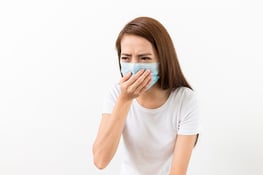
Among the hysteria of Coronavirus, it’s important to adhere to practical and sensible advice to limit its spread. Here are some tips to limit your chances of contracting COVID-19 as well as some information on the virus itself.
What is Coronavirus?
Coronavirus (COVID-19) is a respiratory illness caused by a new virus. Symptoms range from a mild cough to pneumonia. Some people recover easily, others may get very sick very quickly. - health.gov.au
What are the symptoms?
- Runny nose
- Sore throat
- Cough
- Fever
- Difficulty breathing (severe cases)
Who is at risk?
Those at risk of complications caused by the virus include the elderly, those with impaired immunity such as diabetics, and those with pre-existing medical conditions.
What should you do if you think you have it?
It’s important to stay at home if you feel unwell. However, if you have a fever, cough and difficulty breathing, seek medical attention from the appropriate clinic or your local doctor. In all instances, be sure to call in advance and diligently follow the directions of your local health authority.
STEPS TO AVOID CATCHING COVID-19
- Wash your hands frequently
Regularly and thoroughly wash your hands with a soap-free cleansing bar. As an additional germ-fighter, clean your hands with an alcohol-based hand rub in between washes.
Why? Washing your hands with soap and water or using alcohol-based hand rub kills germs including viruses.
- Maintain social distancing
Maintain at least 1 meter (3 feet) distance between yourself and anyone who is coughing or sneezing, and avoid close contact with people who are sick.
Why? Small liquid droplets become airborne when someone coughs or sneezes. These droplets may contain the virus which can then contaminate others in close proximity. It is therefore recommended to maintain at least three feet of distance between yourself and anyone who is coughing or sneezing to avoid breathing in liquid droplets.
- Avoid touching eyes, nose and mouth
Avoid touching your face or sneezing or coughing into your hands.
Why? Hands touch many surfaces and can pick up and carry many germs and viruses. Once contaminated, hands can transfer the virus to your eyes, nose or mouth. From there, the virus can enter your body and can make you sick.
- Practice respiratory hygiene
Respiratory hygiene refers to covering your mouth and nose with your bent elbow or tissue when you cough or sneeze. Then disposing of the used tissue immediately.
Why? Airborne droplets spread the virus. By following good respiratory hygiene, you protect those around you from breathing in or contracting viruses such as cold, flu and COVID-19 from objects.
5. Follow CDC recommendations for using a facemask.
Firstly, the Centre of Disease Control and Prevention (CDC) does not recommend a facemask for people who are well. This is not recommended as a remedy to protect oneself from respiratory diseases, including COVID-19.
Instead, facemasks should be used by people who show symptoms of COVID-19 to help prevent the spread of the disease to others. It is also crucial for those working in healthcare and aged care facilities to wear masks around their patients.
For further information on COVID-19 head here.